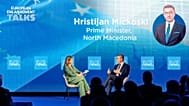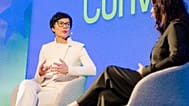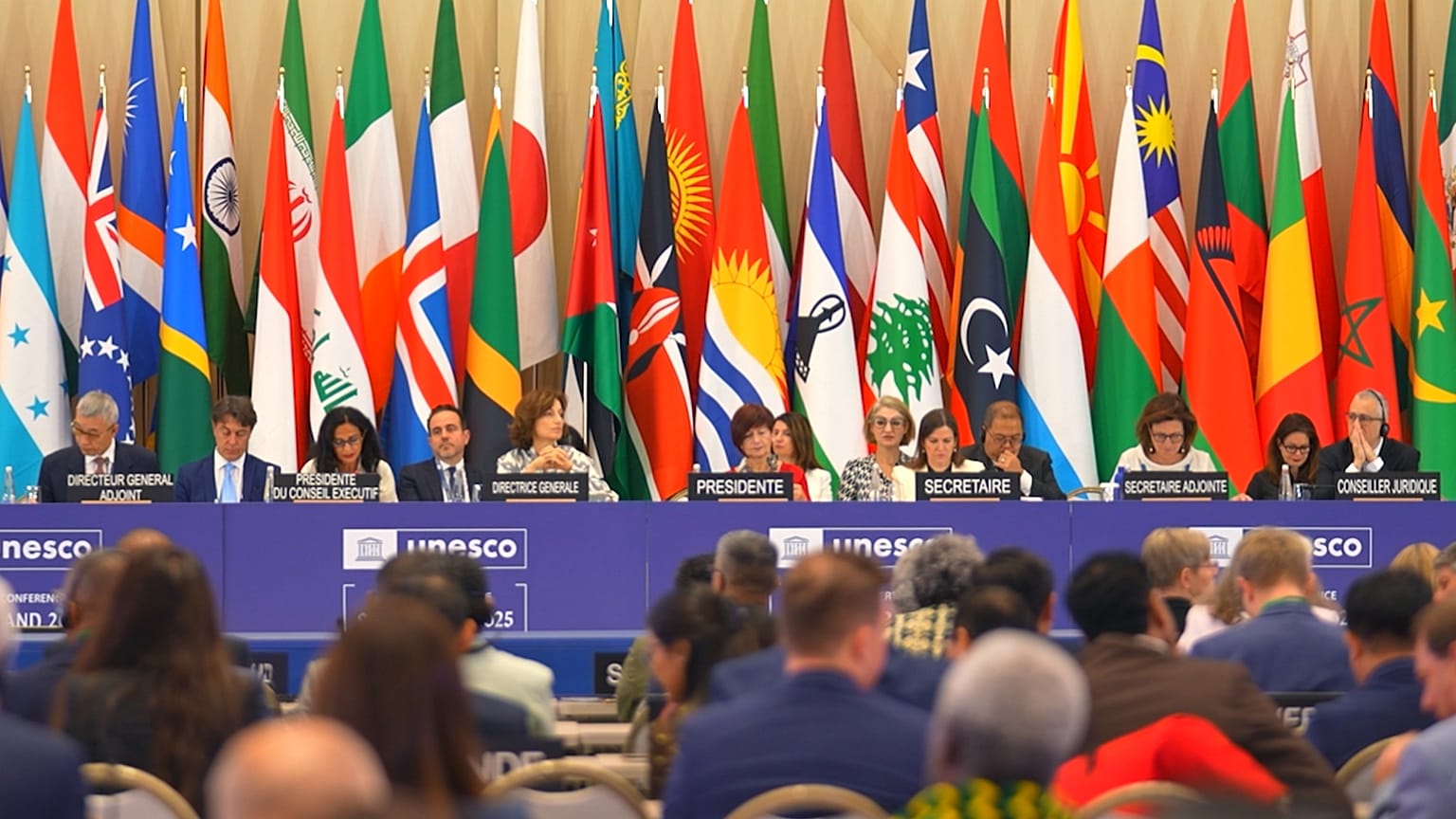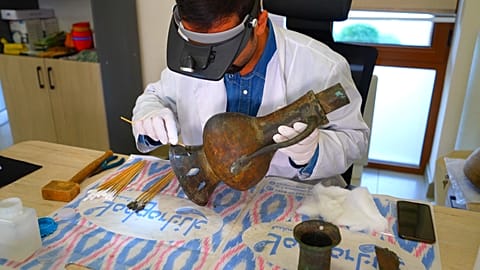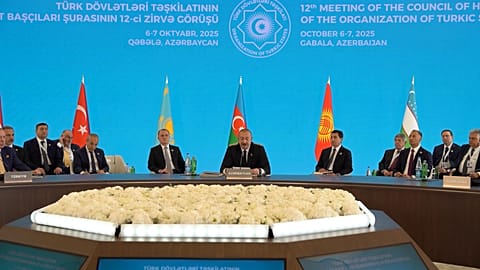Samarkand hosted UNESCO’s 43rd General Conference outside Paris for the first time in forty years. The gathering showcased global debates on education, culture and technology, and underscored Uzbekistan’s reform priorities.
The domes of Samarkand have long witnessed scholars, poets, astronomers and merchants passing through. This autumn, they welcomed a different kind of gathering: nearly 4,500 delegates from around 190 countries, including ministers, researchers, heritage experts, educators, youth leaders and heads of state, for UNESCO’s 43rd General Conference, held outside Paris for the first time in forty years and for the first time in Central Asia.
For two weeks, this historic Silk Road city served as a centre for diplomacy, where discussions on memory and identity took place alongside debates on artificial intelligence and early childhood education.
Uzbekistan, the host country, used the conference to demonstrate that heritage and transformation can progress together.
The Silk Road and Uzbekistan’s vision
President of Uzbekistan Shavkat Mirziyoyev opened the conference beneath mosaic arches, invoking Samarkand’s legacy of scientific exchange. From Ulugbek’s observatory, where astronomers charted star maps used centuries later by Copernicus and Kepler, to manuscript academies whose ideas travelled along trade routes.
“The fact that such a prestigious forum is being held in our country is a vivid manifestation of the high trust that member states have in the large scale and dynamic reforms being carried out in New Uzbekistan,” he said.
His address positioned education as the core of national and global development, linking it with ethical technology governance, women’s leadership, media literacy and safeguarding cultural memory.
Uzbekistan outlined a reform vision that begins in the classroom, extends into science and technology and returns to culture. The government is calling for new international work on inclusive education for children with special needs, the launch of a model Artificial Intelligence school in Uzbekistan and a global forum examining the ethics of AI. Cultural heritage also features prominently, including a proposal to create an International Institute for Digital Heritage and expand access to world archival treasures.
The programme also emphasises women’s leadership in education, science and culture through a new UNESCO academy and introduces a concept for recognising cities that pursue measurable environmental standards.
Samarkand as UNESCO host
If UNESCO has often been associated with Parisian halls and diplomatic corridors, Samarkand provided a different venue, with historic architecture and open spaces.
UNESCO Director-General Audrey Azoulay described the choice of location and her role presiding over her final General Conference.
“People came from every region to discuss cultural heritage, water cooperation, education and AI,” she said. “This is a place where ideas have always travelled and that matters in our current context.”
In the press zone, she added, “It is historic because it is not in Paris. It is here, in a region that connected the world long before borders and summits. Holding this session in Samarkand means something.”
Screens inside the halls displayed manuscript digitisation projects and teacher training portals, while outside delegates walked past the Registan’s facades.
Delegations in Samarkand
Serbia’s President Aleksandar Vučić left the opening ceremony clearly impressed, “It is a great experience to be here, outside Paris,” he said. “I hope this model continues, for Uzbekistan and for other countries. It gives a broader view of each other and the world.”
He noted that bringing UNESCO to Central Asia offers countries a broader view of one another and said he hopes the model continues in future sessions. Vučić also expressed admiration for Uzbekistan and added that he hopes to return to see Khiva and Bukhara.
Kazakhstan’s UNESCO Secretary General Zhanna Arshaymenova shared a similar view.
Standing amidst greetings in Russian and Uzbek, she said, “It is a victory for Central Asia. We share cultural roots. We work on joint nominations. Standing together in Samarkand means a lot for us.”
Education, identity and the digital world
Inside the plenary rooms, conversations ranged from textbooks to ethics committees. Norway’s Education Minister, Kari Nessa Nordtun, spoke in the tone of someone who spends time in classrooms.
“When almost every child attends kindergarten, you change a society. Not only for children, but for women, for families, for the economy,” she said.
She also addressed the digital pressures facing youth worldwide. “We must teach young people to navigate the digital space. Not fear it, understand it. They need skills to recognise disinformation and harmful content,” she added.
Georgia’s Foreign Minister, Maka Bochorishvili, emphasised the link between cultural heritage and modern challenges. “For countries rich in history, protecting heritage and addressing current issues are inseparable,” she said.
For many speakers, heritage and innovation were inseparable. Protecting culture requires investment in education, technology and the next generation.
Inside UNESCO’s machinery
In a corner of the conference centre, surrounded by staff with briefing folders and screens showing live votes, UNESCO Communications Director Matthieu Guével gestured toward the exhibitions lining the halls, teachers trained, sites restored in Mosul, manuscripts digitised, community programmes displayed with photographs and QR codes.
“We wanted people to see what cooperation produces. Not only speeches, results. A rebuilt heritage site. A preserved language. A young researcher funded to study AI ethics.”
He added, “This week showed something important. Countries that disagree on many things can still sit together and commit to shared work. It is proof that cooperation is still possible.”
Nearby, Khondker Mohammad Talha, the President of the 43rd session of the UNESCO General Conference, offered a measured assessment. “There is celebration, yes. But also, expectation. Member states want us to address new digital and environmental challenges without abandoning the fundamentals. Standards. Knowledge. Solutions.”
Uzbekistan’s cultural institutions
Uzbekistan’s cultural institutions spent years preparing for this moment, from restoration projects to digital archiving and international museum partnerships. Gayane Umerova, head of the Art and Culture Development Foundation, summed it up.
“We have worked for years to bring international institutions and experts here not just for ceremonies, but for real collaboration. Partnerships with museums, joint research, new programmes, all of this prepared the ground,” she said.
“This conference demonstrates that Uzbekistan is now viewed as a serious platform for long term cultural and educational cooperation. Delegations are exchanging expertise, shaping projects and planning future work.”
Samarkand’s role in UNESCO’s future
The final resolutions passed, covering neurotechnology, AI governance, early childhood education and museum innovation. The building settled into a quieter rhythm as delegates packed cases, exchanged farewells and the last press files were sent.
Assistant Director General Tawfik Jelassi captured the moment in one sentence, “History lives here and the future must pass here too.”
The choice of Samarkand went beyond aesthetics. It demonstrated that knowledge, culture and diplomacy can be connected across history and modern challenges.
For UNESCO, the session was a reminder that cooperation requires real places, in-person meetings and dialogue. For Uzbekistan, it marked the country’s active role in shaping international discussions.
As the President said in closing, “Samarkand is not only a venue. It is a message.”


